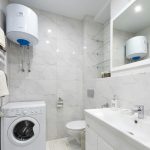Understanding Sleep Hygiene Principles
Sleep hygiene refers to a set of practices aimed at promoting better sleep quality and establishing healthy sleep habits. These principles are vital because they contribute to both mental and physical well-being. Adhering to effective sleep hygiene can dramatically influence an individual’s daily performance, mood, and overall health.
To improve sleep quality, it is essential to follow common sleep hygiene practices. These might include maintaining a consistent sleep schedule, even on weekends, to regulate the body’s internal clock. Creating a restful environment by reducing noise, light, and temperature can also foster better rest. Moreover, limiting exposure to screens before bedtime can help manage melatonin levels, enhancing the ability to fall asleep.
Also to read : Year-Round Gardening Bliss: A Guide for UK Home Gardeners on Choosing and Arranging Plants
The relationship between sleep hygiene and overall health is significant. Poor sleep habits can lead to a range of issues, from chronic fatigue to more severe health conditions like cardiovascular disease and depression. Understanding and implementing sound sleep hygiene allows families to prioritize both their physical and emotional health. By cultivating these habits, individuals may not only improve sleep quality but also enhance their quality of life more broadly, fostering a healthier, more balanced lifestyle.
Overview of Smart Technology in Sleep Enhancement
In recent years, smart technology has significantly advanced the realm of sleep technology, providing innovative sleep solutions aimed at ensuring quality rest. The core advantage of these technologies is their ability to collect and analyse sleep data, enabling a more personalised sleep experience.
Additional reading : Transforming Tap Water: A Guide for UK Residents to Enhance Water Quality with Home Filtration Systems in Hard Water Zones
With the rise of smart technology, consumers now have access to a variety of sleep technology devices designed to improve sleep quality. These innovations include smart mattresses with adjustable firmness, sleep trackers embedded in pillows, and apps that monitor and suggest sleep patterns. For those invested in a family-oriented approach, options are available that cater to family needs, such as smart monitors that track a child’s sleep cycle and offer parental insights.
By focusing on innovative sleep solutions, these technologies are not only tailored to individual preferences but also designed for family use. Families can benefit from features like shared sleep data, which can optimize bedtime routines and promote a healthier sleeping environment for every member. The blend of smart technology with daily sleep habits showcases a promising future for enhanced sleep quality for individuals and families alike.
Sleep Trackers and Their Impact on Sleep Quality
Sleep trackers have become an integral part of enhancing sleep quality, thanks to innovations in wearable technology. These devices, ranging from Fitbit to the Oura Ring, offer critical insights that cater to personal needs. Users can significantly improve their sleep hygiene by relying on data from these devices.
Overview of Popular Sleep Trackers
Popular brands like Fitbit and Oura Ring dominate the market with distinct features. Fitbit is known for its comprehensive sleep stages tracking, while the Oura Ring offers in-depth analysis by monitoring body temperature variations. These brands focus on different aspects of sleep monitoring to aid users.
Family Case Studies
UK families who’ve embraced these wearable technologies share compelling and positive testimonials. They report improvements in routines, thanks to data from sleep monitoring. Families find that trackers highlight patterns, pushing them toward better habits and healthier sleep hygiene.
Best Practices for Using Sleep Trackers
Utilising sleep trackers effectively hinges on understanding and interpreting the gathered data. Integrating this data into family routines encourages consistent and healthy sleep practices. Ideally, using trackers comprehensively aligns with being attuned to one’s unique sleep patterns and steps toward better sleep quality.
Smart Mattresses and Their Benefits
A revolution in sleep comfort, smart mattresses integrate technology to offer personalised sleep experiences. These innovative bedding solutions come with features like adjustable firmness, temperature control, and sleep tracking. Such components not only cater to individual preferences but significantly enhance the quality of rest.
Popular brands in the UK, such as Emma, Eve, and Simba, offer outstanding smart mattresses. Emma’s smart mattresses, known for their modular layers, allow users to customise their sleep surface. Eve’s mattresses feature temperature-regulating technology, ensuring a cool and comfortable sleep. Meanwhile, Simba’s hybrid options blend traditional coil springs with memory foam for unparalleled support.
Family testimonials validate the benefits of these smart mattresses, emphasising improvements in sleep quality and overall health. One parent noted, “Our smart mattress has transformed our nights. We no longer wake up with aches and feel refreshed every morning.” Such stories resonate widely, showing the positive impact innovative bedding brings.
The allure of smart mattresses lies in their ability to adapt and respond to users’ needs, ensuring a good night’s sleep. These technological advancements make investing in a smart mattress a consideration for anyone seeking enhanced sleep comfort.
Sleep Apps and Their Role in Sleep Hygiene
The integration of sleep apps with mobile technology has revolutionised how we approach sleep improvement. These tools offer insights into sleep patterns, aiming to enhance overall sleep hygiene, crucial for maintaining health and productivity.
Overview of Leading Sleep Apps
Prominent sleep apps like Calm and Sleep Cycle have become synonymous with sleep improvement. With their diverse functionalities, including sleep tracking, mediation guides, and soundscapes, they cater to various user needs. These apps are designed to support families in establishing better sleep hygiene routines. By monitoring sleep cycles and offering personalised advice, they provide users with actionable data to improve their rest.
Personalization of Sleep Apps
The power of sleep apps lies in their customisable features. These apps can be tailored for both children and adults, allowing users to select specific settings, like bedtime reminders or soothing soundtracks, that align with their unique preferences. Consistent use is essential for maximising their effectiveness. By gradually adapting to user habits, these tools ensure a more tailored approach to sleep enhancement.
Reviews from UK Families
Feedback from UK families highlights the real-world impact of sleep improvement tools. Many users find that consistent app usage leads to noticeable improvements in their sleep quality. Parents often appreciate the ease with which these apps integrate into daily routines, making it a seamless addition to family life.
Integrating Technology into Family Sleep Routines
Integrating sleep technology into family routines can be a game changer if done thoughtfully. Start by identifying existing sleep habits and determining where technology can support rather than disrupt. For instance, utilising sleep tracking apps can provide insights into sleep patterns and help in adjusting bedtime activities to promote a better night’s rest.
Creating a sleep-friendly environment is crucial. Consider devices like white noise machines or smart bulbs that simulate natural lighting transitions, which can enhance the overall sleep setting. Balance is key, so complement technology with traditional calming practices like reading or meditative activities to establish holistic bedtime habits.
When it comes to managing screen time, guidelines are essential. Establish a tech shutdown period at least an hour before bed. This could involve setting up automated reminders on devices. Encourage alternatives that prepare the mind for rest, such as engaging in quiet family activities.
Introducing technology into family routines can enhance sleep quality when used appropriately and in moderation. By carefully monitoring sleep technology integration, families can implement strategies that suit their needs, ultimately supporting healthier and more restful nights for everyone.
Cultural Considerations and Product Availability in the UK
In the UK market, the demand for sleep technology products is steadily rising, driven by a burgeoning interest in quality sleep and well-being. Noteworthy devices include white noise machines, smart mattresses, and sleep-tracking wearables. Each of these products has been tailored to fit the cultural relevance of the UK, where technology acceptance plays a crucial role in consumer decisions.
Cultural attitudes in the UK often involve a cautious approach to new technology, especially in intimate settings like the bedroom. Many people balance the benefits of these devices with privacy concerns, leading families to search for information before purchasing. It’s essential to understand how cultural relevance shapes these attitudes towards sleep technology, which is seen as both an innovative solution and a potential intrusion.
To make informed purchasing decisions, UK families have access to various resources. Expert reviews, consumer reports, and technology blogs enable individuals to navigate the plethora of options available. Furthermore, local retailers often provide demonstrations and workshops, highlighting how technology acceptance can be enhanced by understanding product benefits and features in a UK market context. This encourages buyers to approach new sleep technology thoughtfully, ensuring it aligns with their cultural values and lifestyle preferences.













